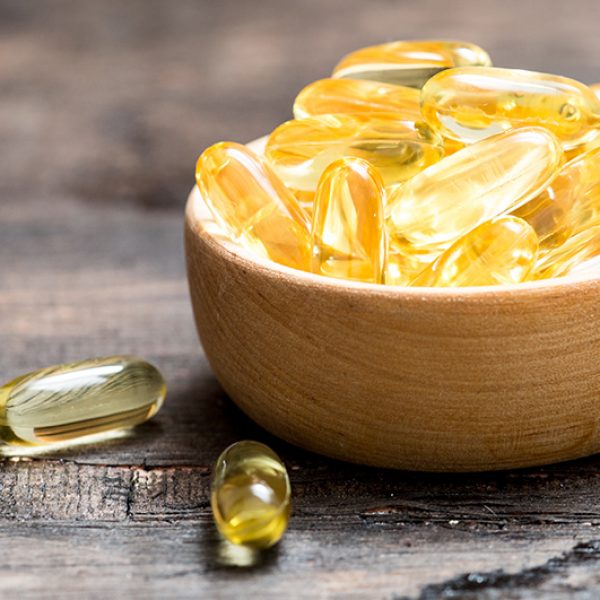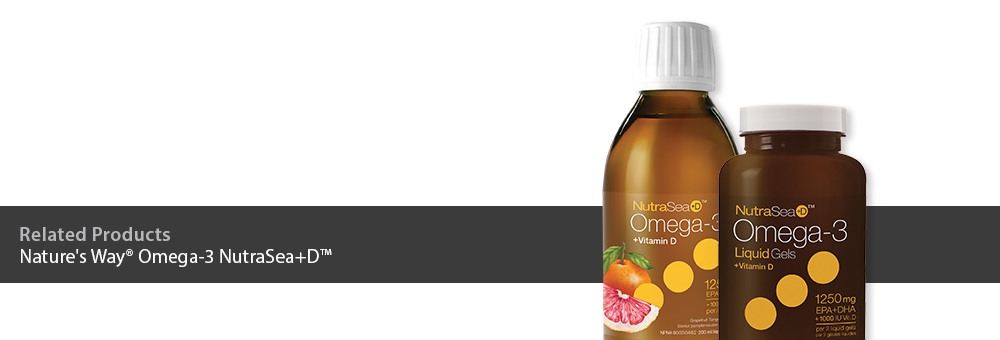

Why do you need omega-3 anyway?
Omega-3 fatty acids are a hot topic these days – and for good reason! Omega-3 fats are found throughout the cellular membranes of our bodies and research suggests they can positively impact many aspects of our health. However, since our bodies don’t produce omega-3, we can only acquire it by eating foods rich in essential fatty acids such as cold-water fish. There are three key omega-3 fatty acids to highlight:
- EPA (eicosapentaenoic acid)
- DHA (docosahexaenoic acid)
- ALA (alpha-linolenic acid)
The most direct forms of beneficial omega-3 are EPA and DHA. These are available in marine oils such as fish and algal oils and offer the most immediate benefit for the human body.
ALA is found in green leafy vegetables, plant oils, including nuts and seeds such as walnuts and flaxseeds. It must be converted into the longer-chain EPA or DHA omega-3 fatty acids which makes it a less efficient source of beneficial omega-3. Studies show that we convert ALA into EPA and DHA at a rate of only 5%.1
What about vitamin D?
Vitamin D – often called “the sunshine” vitamin – is not naturally present in food sources. Instead, it’s produced by our bodies from exposure to sunlight. There are two forms of vitamin D that you may have heard of, vitamin D2 (calcidiol) and vitamin D3 (calcitriol), the latter being the physiologically active form.
Vitamin D is involved in a number of areas of health, and plays a key role in bone health. Specifically, it promotes calcium and phosphorous absorption and helps in the development and maintenance of healthy bones and teeth.
What about supplementation with omega-3 and vitamin D?
Many people choose to supplement their diet with both omega-3 and vitamin D. Typically, the omega-3 is derived from fish or algal oil as a direct source of EPA and DHA. Since Vitamin D is a fat-soluble vitamin, it can be safely added to essential fatty acids. But with all the options out there, how can you choose the one that’s best for you?
This is where NutraSea liquid omega-3 stands out. As Canada’s best-selling liquid omega-3, NutraSea is known for their complete lineup of clean, light-tasting products. A single teaspoon of NutraSea a day gives your body all the beneficial essential fatty acids it needs to stay healthy. Their formulas are available in a wide range of flavours ranging from lemon to cranberry orange, apple and chocolate. If you’re looking for a product with the added benefits for vitamin D3, try their NutraSea +D grapefruit tangerine – it’s delicious!
What about purity and potency?
All NutraSea products are third party tested by the PureCheck program so you can access test results for potency, purity and oxidations for each lot of product online (www.purecheck.net). When it comes to omega-3 supplements, you want the peace of mind that comes with knowing you’re getting the premium quality EPA/DHA you expect from your purchase.
Best of all, NutraSea liquid products are manufactured right here in Canada. So the next time you’re looking for an omega-3 supplement with added Vitamin D, try NutraSea+D – available coast to coast in any of our HFN member stores!
References:
1. Plourde, M. and S.C. Cunnane, Extremely limited synthesis of long chain polyunsaturates in adults: implications for their dietary essentiality and use as supplements. Appl Physiol Nutr Metab, 2007. 32(4): p. 619-34.
2. Brenna, J.T., Efficiency of conversion of alpha-linolenic acid to long chain n-3 fatty acids in man. Curr Opin Clin Nutr Metab Care, 2002. 5(2): p. 127-32.

